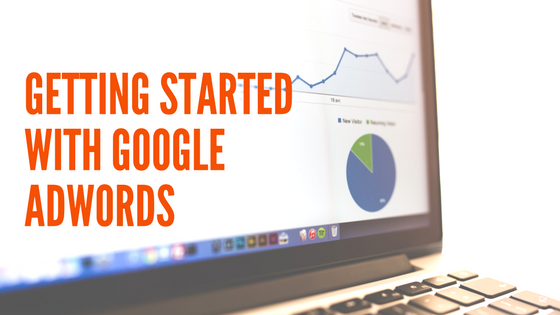
Getting started with Google Adwords
By Team EtchRock in Adwords & SEO,EtchRock
- 5 ways to boost your post-event engagement - June 22, 2017
- 7 ways to grow your email database - June 15, 2017
- 5 ways to increase slowing ticket sales - May 29, 2017
Getting started with Google Adwords
So you’ve made the commitment to being found online and decided to give Google Adwords a try, smart call. But if you haven’t had experience using PPC (Pay per click) platforms such as Google’s Adwords, it can be a bit intimidating at first. We wrote this blog post so that we can help you get set up and understand the basics!
So first off, why should we be using Google Adwords? What value will it give my event?
Being the most popular search engine, having a presence on the front page of Google will always hold value. But if you aren’t ranked on the first page and don’t have a sound SEO (search engine optimisation) strategy in place, your event could remain hidden.
But you’re in luck, with Google Adwords, you can get your message right to the top of the page if you’re willing to pay.
How does Google Adwords work?
So this is what your search engine results page (SERP) will look like. As you can see, the top three results have the word ‘ad’ next to them. This means that these website are paying to be listed there.
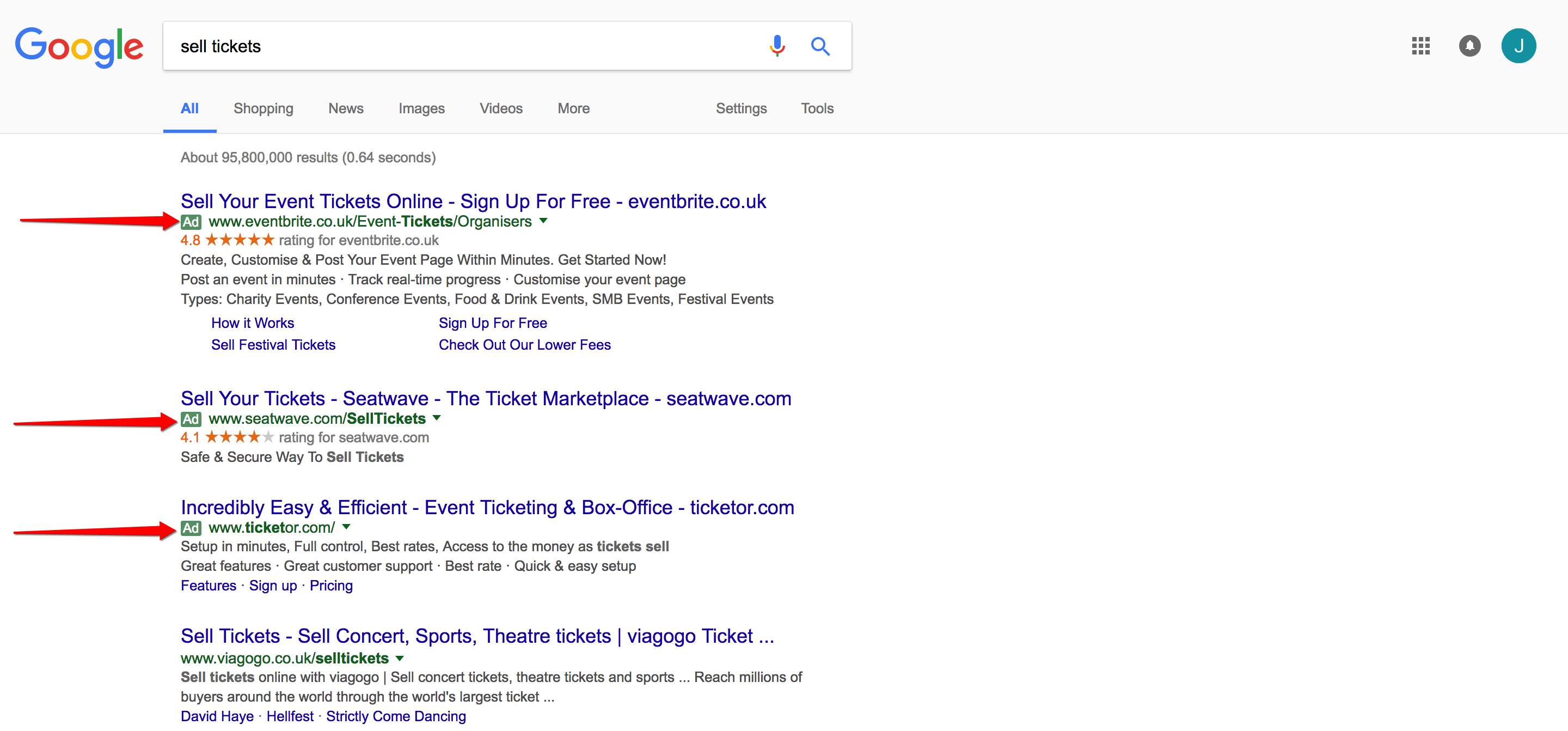
These advertisers have created ads for certain ‘keywords’ or phrases (in this case, ‘sell tickets’) to have their ad appear when someone searches for your phrase. Whenever a visitor clicks on your ad, you pay a certain amount to Google depending on the competitiveness of your keywords. We call this one-time transaction, the cost-per-click (CPC). This means that you only have to pay when someone interacts with your ad.
How much you are willing to bid for a click is a significant contributor to your overall page ranking, but not everything. It also ranks ‘relevancy’ of your ads, or as Google calls it, ‘quality score’. Quality score is made up of three different factors shown below in this table from Sherman Marketing.
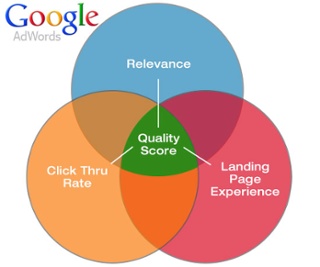
Google is smart in the fact that it likes to present it visitors with the most relevant content and rewards those that do so with a high-quality score. Without going into too much detail (we’ll save that for later), to get a high-quality score, you need to make sure all the elements of your Adwords campaigns are in-line. This can also bring down your CPC. Wordstream explains that, “A high-quality Score is Google’s way of saying that your PPC ad meets your potential customers’ needs. The better you are at meeting the prospect’s needs, the less Google will charge you for the ad click”.
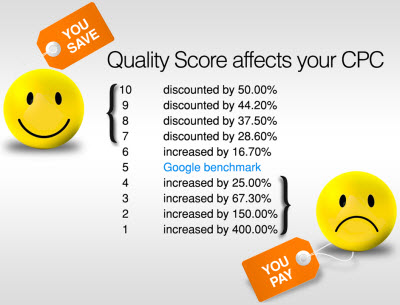
Source: WordStream
Now that you know the basics of what Google Adwords actually is, next we can look at how to structure your first campaign.
Google Adwords accounts are arranged from the top down starting with campaigns, leading into different ad groups and finishing with keywords & ad text. Understanding how each layer works will help you target your ads more efficiently, here’s an awesome graphic from the guys at WordStream to help illustrate this.
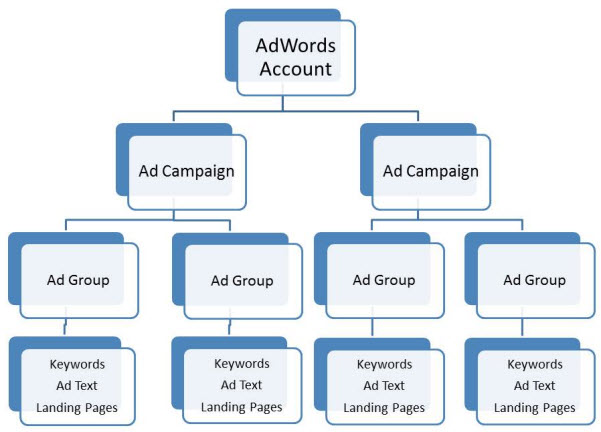
As you can see from the image above, Ad campaigns are used to organise different Ad groups which in turn house different keywords.
The easiest way to look at how to organise your first campaign would be with an example. Let’s say you run an events company and you were looking to promote your races, this is what the structure may look like, piece by piece, starting with the actual account.

As the new event is an event company, all ads for your events would come from this account.
Next, we start to build our campaigns. Let’s say we have more than one type of event, running and cycling. The next stage of our organising our structure would be to separate these into two different campaigns as follows.

Now that we have two separate campaigns set, we can move onto organising our Ad groups. This is where we need to start thinking about keywords and what people will potentially be searching for in order to come across your Ad. Here’s an example below and a brief explanation why.

An easy way to segment your ad groups is by geographical location. For simplicity sake, let’s say your events are held in London. This is the perfect topic for an Ad Group. Another could be the ‘type’ of event that yours fall into, for instance, marathons and sportives.
Now when we start to write the copy for our ads, landing pages and keywords, we know where to put certain elements. Remember how Google ranks you on quality score and the relevance of your ads? Make sure you put the right content underneath the right Ad group, otherwise you run the risk of lowering your quality score.
Keep you eyes peeled for our next post where we look at how to choose the right keywords for your campaigns.


